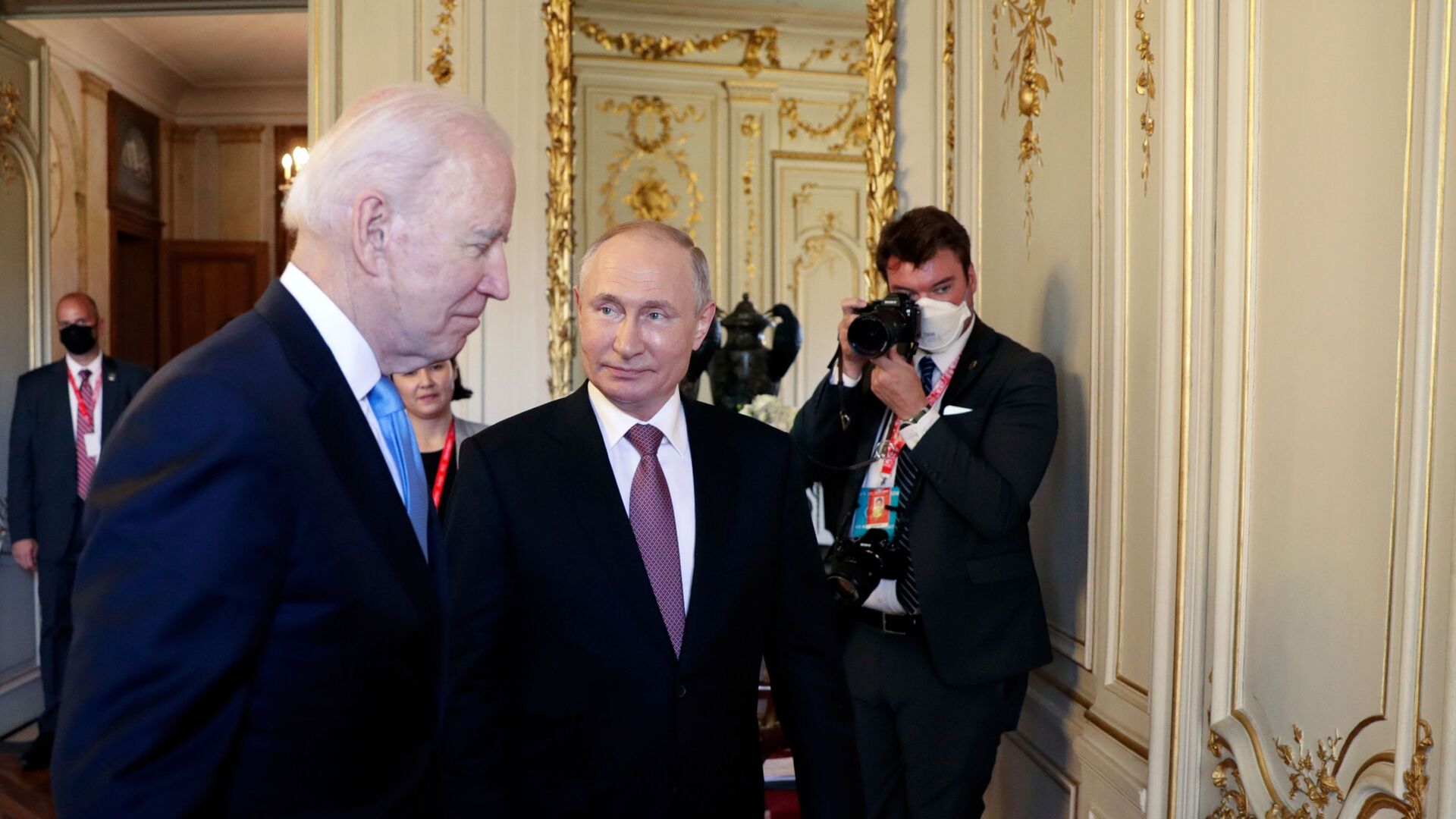Biden Says 'We'll See' When Asked If He Would Meet With Putin on Jan 10
22:19 GMT 28.12.2021 (Updated: 18:27 GMT 03.11.2022)

© REUTERS / SPUTNIK
Subscribe
US President Joe Biden seemed ambivalent about the possibility of a January meeting with Russian President Vladimir Putin amid a standoff in Ukraine, which Washington claims Moscow is likely to invade with deterrence by NATO despite all claims otherwise from Russia.
Earlier on Tuesday, a spokesperson for the White House National Security Council told Agence France-Presse that bilateral talks had been scheduled for January 10. Representatives from the NATO alliance are also tentatively set to meet two days later and the Organization for Security and Cooperation in Europe (OSCE) the day after that.
"When we sit down to talk, Russia can put its concerns on the table and we will put our concerns on the table with Russia's activities as well," the spokesperson said.
Asked about the meeting, Biden told reporters "we'll see."
Of course, the Kremlin doesn't seem to think the dates are firm, either: earlier on Tuesday, Deputy Foreign Minister Sergei Ryabkov told reporters the dates "are being considered, but there is no final agreement."
The meeting would primarily concern the Strategic Security Dialogue that Biden and Putin laid out in June, which aims to restore and save Cold War-era nuclear weapons agreements between the two superpowers, some of which were allowed to lapse by Biden's predecessor, Donald Trump.
However, the talks would also include security guarantees in Ukraine, where a right-wing nationalist government faces a rebellion by autonomous Russian-speaking cities in the country's east. The country edges ever closer to NATO, an alliance formed during the Cold War to oppose the Soviet Union and its socialist allies but which has persisted into the present day as a de facto anti-Russian alliance.
Russian troops deployed in southern Russia have sparked alarm in Kiev and Brussels, which have claimed the deployments are a prelude to invasion. As justification of their fears, they point to Russian-speaking Crimea, which seceded from Ukraine in 2014 and elected to rejoin Russia in a referendum the western powers refuse to recognize, calling the move a land grab by Putin.
Moscow has noted it can send its troops wherever it wants in its own borders, but that they pose no threat to Ukraine. Nonetheless, when Biden and Putin spoke earlier this month via video call, Biden threatened him with severe sanctions if Russian troops crossed their western border.
Putin has said that Russia cannot abide NATO expanding further east after adding several former Soviet allies and former Soviet republics to the alliance, or the stationing of offensive weapons by NATO in Ukraine. NATO said earlier this month it was prepared for de-escalation and confidence-building measures with Russia via the OSCE, but expected Moscow to act in parallel.
